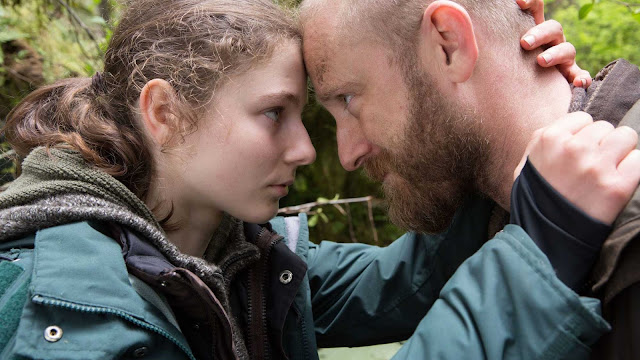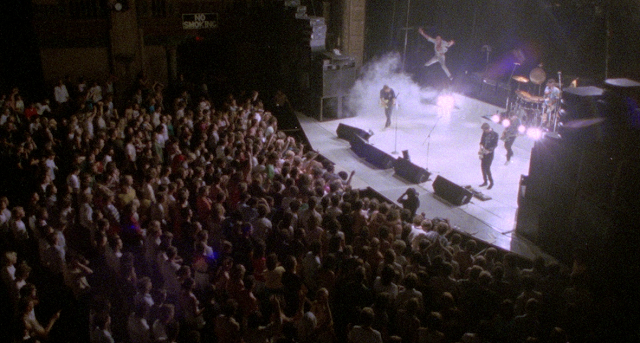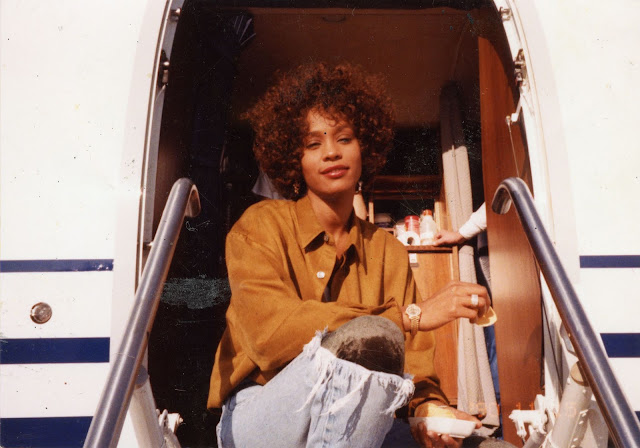Interview with Debra Granik, director of Leave No Trace
 Director Debra Granik received accolades when she launched Jennifer Lawrence into the collective consciousness with Winter's Bone.
She's now back with new film Leave No Trace, a tale of a father-daughter who live in the woods and whose co-existence is shattered when they're discovered.
Debra was in New Zealand for the premiere of Leave No Trace, and was generous enough to spend some time discussing the film, the actors, and her desire to pursue social realism in cinema - and the problems that causes with a system that doesn't always know how to promote it.
Director Debra Granik received accolades when she launched Jennifer Lawrence into the collective consciousness with Winter's Bone.
She's now back with new film Leave No Trace, a tale of a father-daughter who live in the woods and whose co-existence is shattered when they're discovered.
Debra was in New Zealand for the premiere of Leave No Trace, and was generous enough to spend some time discussing the film, the actors, and her desire to pursue social realism in cinema - and the problems that causes with a system that doesn't always know how to promote it.
Eight years between feature films is a long time, how does it feel to be "back" with the accolades levelled at Leave No Trace?
Debra - I did a documentary in between so I consider it more like 4 out; I was deep in trenches with filming, but I'm really pleased that people respond to Leave No Trace. It's a quiet film, but it's exciting to see that there's still some space for a quiet film and audiences respond to that, because it makes me really happy as that's the natural style that I gravitate to; I'm relieved and happy.
In the blockbuster climate we live in, and the arthouse scene being under more threat than before, is it hard to get films like this made? The landscape is starved of original content.
Right, because I labour outside of the industry, subject matters I'm interested in, and ways I like to make my film don't dovetail well with the industry model. I'm interested in working with new emerging actors and I'm interested in films out of the social realism genre, everyday life, they don't have high stakes in the traditional manner. They're high stakes to me, it's values you aspire to, it's whether you live undetected and not be detected, whether you go against the grain, whether you can pay the rent - those are high stakes to me. Those are the ingredients that make it hard for me; financiers are frequently looking for things that fit a certain rubrik or a certain set of ingredients they can count on. A certain sort of popular jolt; they may have a threat of violence, or have really narrow definition of what hetero-normative sexiness would be, they frequently rely on a very known entity, like an auction block, so they can say that Actor A is worth this much in New Zealand, Australia or Asia, Actor B can bring in this much; there's a price tag around actors' necks and how much they're worth. I was trying to get out of that human evaluation money thing; just so we can see stories like in the old realist tradition, you're picking people to represent story because you think they have some grist, some life experience, some association with it.
Talking of actors, with the leads Ben Foster, who delivers a very internalised performance and Thomasin Mckenzie, how did you nurture the two actors as a pair to form the bond we see on screen?
Yeah, they had some really good rehearsals together, and they developed their traction in their collaboration. They were both given some tools in their training, a skills trainer taught them a variety of things they could do on screen and they practised them. They made a meal together, they did a lot of things in the woods together so that they could learn to interact with things together, build a fire, cook a meal, build the feathersticks, real tasks, really make their home feel like a place they had together. Traipse in the woods, that kind of thing, do these activities that enabled them to be a pair on screen.
I'm torn on the ending because Ben's character goes into the woods, never to be seen again and you have no idea when or whether he and his daughter will reconnect - how do you see the bittersweet ending?
Without being evasive or trying to be aloof about this, I love that I've enjoyed the conversation with audiences and me being part of it after the end. Almost half of the audiences I've seen it with think that when she puts the bag on the tree, it means that somehow he's nearby - when people recognise that bag from earlier in the film when it was left for the man in the woods.
For us, it was a simply a moment of eerie filmmaking because when Ben disappeared, we didn't use any trick photography there, he simply disappeared. He became no longer visible to our lens when we were filming that sequence; when he went off the road and walked into the scrub, we could not see him anymore - and that was only on one take; we used that take. It felt like a very serendipitous poetic thing to put in there. A very bittersweet ending, but people interpret it either way - people think they shall meet again, you know? Others think he couldn't find his way on this particular path he was on; he was seeking something he couldn't find and he knew to let her be; there is no doubt about it being bittersweet because any of those interpretations are bittersweet; it's about the divergent paths that people take when they realise that they aren't naturally wired the same and don't necessarily require the same things.
What was it you saw in Thomasin for the lead role?
I can never know that chemistry thing, I can't predict or know that but I did know that she was providing so much rich conversation when we would talk by Skype and in the improvs we did, she did some riffs on the script, and she showed initiative. And that was it; she was giving back; what she was sending back to me was incredible and I said "Wow, this is the stellar collaborator". So I didn't know; she took it on herself to be really present and provide in the way that Ben could really respond to.
You hadn't heard of the story before, what was it that attracted you to it?
The novel was a really interesting read, the premise was really interesting as well; from the real article on. You know the fact that in Portland, a father and daughter had been found and had lived undetected successfully - that's just an interesting premise; in a municipal park, with a mid-size city nearby. I was already drawn in by just the premise. From there, I immediately said "What happens to people like that once they're discovered, can they ever return to what things they were seeking, ways of life, will they be flipped, up-ended and find it really hard to re-calibrate, would they find they can still live against the grain?"
It's interesting that these characters are not leading problematic lives in the woods; they're not harming anybody, and they are only perceived as doing so by society looking at them...
Yes, that's a very rich point; I agree with you. That's what makes the film so philosophical is because part of their story ignites or initiates a feeling of contemplation, right? Because we know anyone who wants to live on public land, they can't because the public land would fill up and people would despoil it, people wouldn't live as scrupulously or as carefully; so because there's something about their methodology that's so specific and required a discipline. It was not a willy-nilly lifestyle, but then as a social worker points out in the film, there's just this blanket law that applies to everyone supposedly. To me, it became very relentless questioning in my mind as I was writing the screenplay, it just dawned on me something which is like such a basic concept - you only get to choose your lifestyle if you've got property. You have to own something in any contemporary society in order to choose your lifestyle. Should you have a parcel of land, you can go there and put your solar receptors there, build your fire and live any way you want - that's your piece of land you supposedly own. But without that you're not entitled to leave anywhere.
Globally we're coming to a point in life where living like that should not be seen as a problem; everyone's got problems of property and land ownership - and we have a rich way of using resources which we're not exploring.
That's fascinating - I would say that was one thing that was both confusing and heartbreaking, even investigating the tiny house, the big movement in the Pacific North West. Big swathes of Americans wanting to downsize; the money they are capable of earning, the way the economy distributes them, or permits distribution - they've deemed what they can afford to live in, out of elements, with hygiene is a tiny house. Not much bigger than this interview enclosure, and the headline is 'Many people seek tiny houses, nowhere to put them'. Where are you entitled to pull up your tiny house? Living in a tiny house in a very big asphalt car park would be no-one's idea of an ongoing picnic you know? We're faced with that question that's knocking on the door of every organised society right now, which is Where are we entitled to be? All of us, every single human beings has the same set of basic needs - Food, clothing, shelter and companionship. The question is 10,000 years why is it phenomenally, that we cannot solve or facilitate how people get their basic needs. There are people saying I don't need more than my basic needs - I'm willing to do without material possessions.

But in a weird way as well, those people aren't willing to share their possessions with other people. They're willing to downsize for themselves rather than to look to open up their land at the back of their house to let a community in, we are still quite selfish in many ways.
I don't want to overstate it, but I'd like to think those questions come up from Leave No Trace, but I can't guarantee that for any body, but I like that you're asking that; I love being in any of films, be it in my own or my colleagues or in a rich festival such as the New Zealand International Film Festival and to be asked to think, be invited to think - if any thoughts like that circulate while watching this, I'd be pleased. Especially in a film like this, when it's not a tentpole film, a bombardment of superpowers and ultra-violence.
Do you feel we're losing films like this these days in the superhero cinema world?
My goodness, of course I feel disappointed if there's no room for the smaller quieter films. If the arthouse system can kind of continue and stay robust enough that people who seek other films have a place to go. To me, it's like flexitarian - I would never want that everything in the world has to be meat and potatoes, but I love a restaurant that can offer both. I love a restaurant that can offer a whole load of vegetarian options as well as meat one; same things with blockbusters - big pieces of big raw meat, but then can also be peaceful co-existence. Co-existence, that would be my idea of a good time.
Where do you want to go next after Leave No Trace?
That's a valid question - it's always on my mind! I'm trying to do an adaptation of a non-fiction book actually, but trying to make it into fiction. Filming it as a narrative fiction, and it's a book about surviving in the post-financial crisis economy as it collapses around workers who have been trying to eek out a living in the service industry and economy and seeing that contract quite a bit - the brick and mortars disappearing quite a bit. It's hard for people trying to earn a living to keep up with an ever-pyramiding capitalism, peaking so narrowly at the top, and losing its ability to provide work opportunities for those not at the top. This obscene flaunting of privilege of richness that became so much more acceptable in this era, it's just blustery me-ism of what this era represents. It's just deafening. I would love to try and show examples of good ole days when people wanted to be nice to each other and be in this together. I would love to think that some of us are just cultivating some stories that show this is possible.
Leave No Trace is playing at The New Zealand International Film Festival.








































%20&%20Edith%20Poor%20(Lizzie%20Moyle)_%C2%A9BBCS%20&%20Bunya%20Entertainment.jpg)